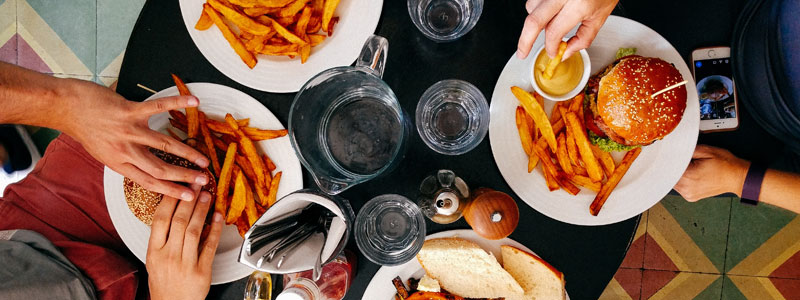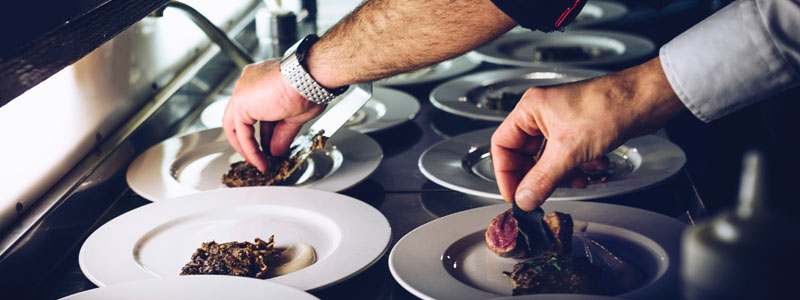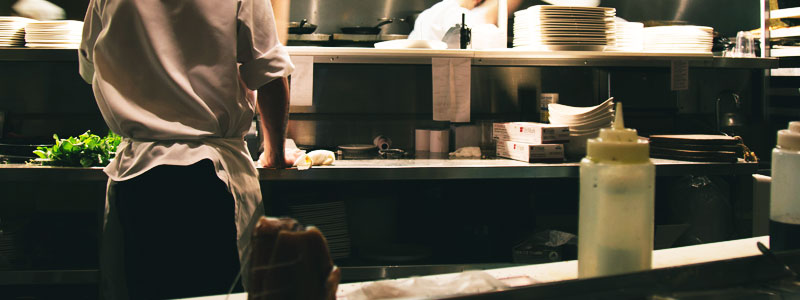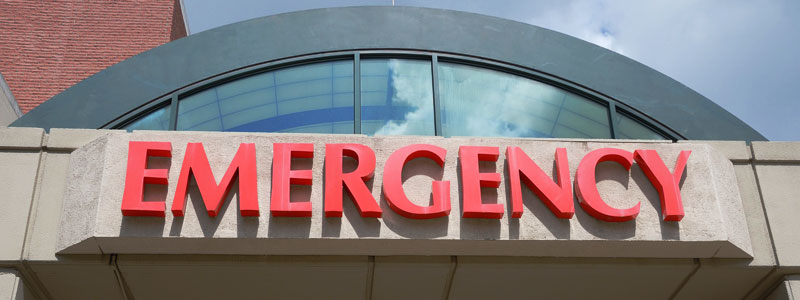Is a Restaurant Liable if You Contract Food Poisoning?
Food safety is something we often take for granted. You don’t typically order a meal at a restaurant and then demand that someone test it for contaminants. Every once in a while, you may see a recall alert online or on television that prompts you to throw away a certain food item, but that’s hardly […]

February 12, 2018

Food safety is something we often take for granted.
You don’t typically order a meal at a restaurant and then demand that someone test it for contaminants. Every once in a while, you may see a recall alert online or on television that prompts you to throw away a certain food item, but that’s hardly an everyday occurrence.
No, for the most part, we trust chefs, servers, hosts, dishwashers, bakers, grocers, factory workers, and others in the food industry to ensure the food we purchase is safe.
Food poisoning, however, results when that trust is broken between the food industry and the general public. Somewhere along the line, someone neglected to do their duty and ensure the quality and safety of their food. Because of their negligence, a person or multiple people suffered.
If you get food poisoning after going out for dinner, you may just think this is the risk you take when you don’t make your own meal. That’s not true. You have a legal right to expect food that’s safe to consume.
If you have food poisoning and you think a restaurant is to blame, you may have a case.
Proving Food Poisoning

Eventually, everyone gets sick. But food poisoning isn’t your typical illness. It’s the direct result of negligence.
That’s the first hurdle: proving your symptoms are the direct result of the food you consumed. Your symptoms alone are not enough to prove liability. Even a general timeline that suggests a link between your meal and your symptoms isn’t hard enough evidence.
Instead, you’re going to have to get a sample of the food you ate tested. This is where many cases come to an end. You may not have had leftovers, and even if you did, you may have thrown them out after your symptoms began. You may not have refrigerated your leftovers, leaving them susceptible to contamination after you had already eaten the meal itself and therefore making any test results inconclusive.
The best case scenario for your claim is to have refrigerated leftovers of your meal. That way, you can test those leftovers and get an accurate result regarding whether or not they were contaminated in any way at the time of consumption.
Who Is Responsible?

That depends. Once it’s clear that your food poisoning is directly linked to a certain meal, you still have to determine whose negligence led to your poisoning.
Sometimes, it’s the fault of the restaurant. Undercooked or improperly cooked food can easily lead to food poisoning. However, the consumer does have a responsibility not to request food that’s undercooked. Most restaurants have warnings on their menus that inform customers that consuming undercooked meat or eggs, for example, may lead to health problems. If you ordered a rare steak and became ill for no reason other than that the steak was, by design, undercooked, then you may struggle to find an attorney willing to take your case.
Sometimes, it’s the fault of the supplier. Somewhere along the production line, the food item in question became contaminated. In these cases, you likely won’t be the only victim of food poisoning. There may be a citywide or nationwide recall, depending on the scale of the supplier.
Even if the food became contaminated during production, the restaurant may still be held responsible if it uses the contaminated food item after the recall has been announced.
The Results of a Food Poisoning Claim

Keep in mind that, in order to file a claim against the food industry, you need to have suffered specific consequences from ingesting contaminated food. Negligence has to be tied to a specific injury or illness.
For example, let’s say you’re eating soup at a restaurant and you discover a small screw in your soup. That would be upsetting for anyone to find. However, if you didn’t suffer any injuries or illnesses due to the screw, you likely wouldn’t have much of a legal claim.
Now, let’s say you’re eating soup and you bite down hard on a screw. You shatter one of your molars and have to get emergency dental work done in order to fix the damage. That’s a specific consequence of the restaurant’s negligence.
Specific consequences of negligence are also known as damages. You should receive compensation for your damages if you win your case during trial or agree to a settlement beforehand.
When it comes to food poisoning, remember that you need to suffer a specific injury or illness if you want to recover damages. If you’re simply sick for an hour after the meal but feel fine later, there’s not much you’ll receive even if you do win your case. The courts may slap the restaurant with punitive damages to discourage them from such negligent behavior, but that may be it.
However, if your food poisoning keeps you home from work for a day, for example, or sends you to the emergency room, you now have quantifiable damages. If you choose to pursue a claim, you won’t want to agree to a settlement unless it covers those damages. You shouldn’t have to pay a single penny for someone else’s negligence.
Help from Hensley Legal Group
If you’ve suffered food poisoning, seek treatment first to get the help you need. Later, if you decide to file a claim for your food poisoning, call Hensley Legal Group or contact us online for a free consultation.